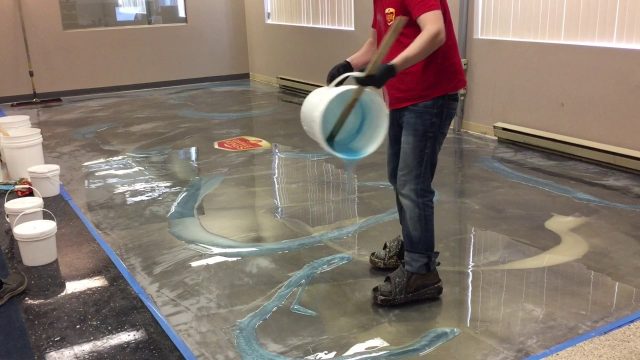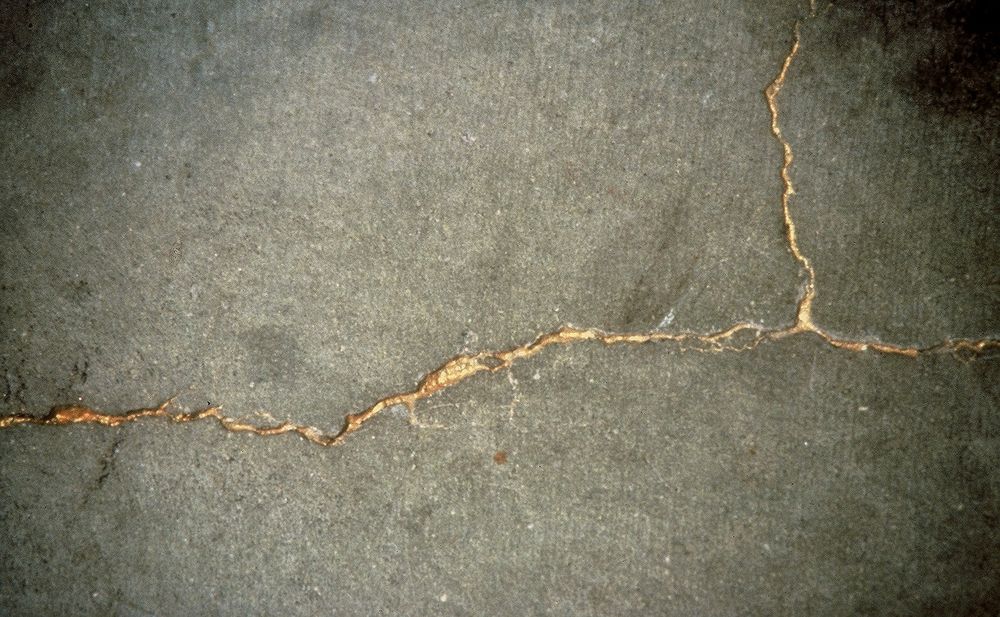In this article you will learn how thick can you pour epoxy floor coating.
Epoxy floor coatings are a popular choice for residential and commercial properties because of their durability, ease of maintenance, and attractive finish. They are used in various settings, including garages, basements, warehouses, and showrooms. Epoxy floor coatings provide many benefits, including protection, aesthetic benefits, and ease of maintenance and upkeep.
One important aspect of applying epoxy floor coatings is the thickness of the application. The thickness of the epoxy can affect the strength and durability of the finished floor, as well as the overall appearance. In this article, we will explore the ideal thickness for various surfaces and types of epoxy, as well as different conditions and environments.
Ideal Thickness For Concrete
When applying epoxy to concrete surfaces, the recommended thickness is typically between 2 and 4 millimeters. This thickness provides a strong and durable finish that can withstand heavy foot traffic and equipment. It’s critical to note that the thickness of the epoxy should be consistent throughout the entire surface to ensure even wear and tear. If the epoxy is applied too thinly, it may not provide enough protection and could peel or crack over time. On the other hand, if the epoxy is applied too thickly, it may result in a rough or uneven finish.
It’s also fundamental to properly prepare the concrete surface before applying the epoxy. This includes cleaning and repairing any cracks or damage, as well as applying a concrete primer to help the epoxy adhere properly. Proper preparation will ensure that the epoxy can bond properly and achieve the desired thickness.
How thick can you pour epoxy floor coating for metal?
Epoxy coatings can also be applied to metal surfaces, such as steel or aluminum. The ideal thickness for these surfaces is typically between 2 and 3 millimeters. This thickness provides a durable, long-lasting finish that can withstand wear and tear.
As with concrete surfaces, it is important to properly prepare the metal surface before applying the epoxy. This includes cleaning the surface and removing any rust or corrosion. A metal primer can also help the epoxy adhere properly and achieve the desired thickness.
It’s worth noting that the thickness of the epoxy may vary depending on the specific type of metal and the intended use of the surface. For example, a thicker layer of epoxy may be necessary for surfaces subjected to heavy wear and tear, such as on a factory floor.
Ideal Thickness For Wood
Do you want to learn how thick can you pour epoxy floor coating for wood? Epoxy coatings can also be applied to wood surfaces, such as floors, countertops, and tables. The ideal thickness for these surfaces is typically between 1 and 2 millimeters. This thickness provides a durable and long-lasting finish that can protect the wood from scratches and stains.
Preparation includes sanding the surface to remove imperfections and applying a wood primer to help the epoxy adhere properly. It’s also important to choose the right type of epoxy for the intended use of the surface. For example, a self-leveling epoxy may be necessary for a smooth and even finish on a floor, while a thicker, more rigid epoxy may be better suited for a countertop or table.
Ideal Thickness For Other Surfaces
In addition to concrete, metal, and wood, epoxy coatings can also be applied to other surfaces, such as ceramic tiles, terrazzo, and natural stone. The ideal thickness for these surfaces will depend on the surface’s specific characteristics and the epoxy coating’s intended use.
A thickness of 1-2 millimeters for ceramic tiles and terrazzo surfaces is generally sufficient. This thickness provides a durable, long-lasting finish that protects the surface from wear and tear.
For natural stone surfaces, the recommended thickness is typically between 3 and 4 millimeters. This thickness is necessary to provide sufficient protection for the porous and brittle nature of natural stone. It’s critical to use high-quality epoxy specifically designed for use on natural stone surfaces to achieve the desired thickness and ensure a strong and durable finish.
Ideal Thickness For Different Types of Epoxy
There are many different types of epoxy coatings, each with unique characteristics and uses. The ideal thickness for each type of epoxy will depend on the specific properties and intended use of the coating.
For example, self-leveling epoxy is a type of epoxy that is designed to self-level and smooth out uneven surfaces. This type of epoxy is typically applied in a thickness of 1-2 millimeters and is ideal for use on floors and other flat surfaces.
Thicker, more rigid epoxies, such as tabletop or countertop epoxies, are typically applied in a 2-4 millimeters thickness. These epoxies are designed to provide a strong and durable finish that can withstand heavy wear and tear.
It is important to follow the manufacturer’s recommended application thickness for each specific type of epoxy to achieve the desired results.
Ideal Thickness For Different Conditions and Environments
The ideal thickness for epoxy coatings may also vary depending on the specific conditions and environments in which they will be used. For example, in environments with heavy foot traffic or heavy equipment, a thicker layer of epoxy may be necessary to provide sufficient protection and durability.
A thicker layer of epoxy may also be necessary for humid or wet environments to provide adequate protection against moisture. Epoxy coatings are resistant to water but can still be damaged by prolonged exposure to moisture. A thicker layer of epoxy can help to prevent water from seeping through and causing damage to the substrate.
Consider the specific conditions and environments in which the epoxy coating will be used when determining the ideal thickness.
Final Thoughts
In conclusion, the ideal thickness for epoxy floor coatings will depend on the specific surface, type of epoxy, and conditions and environments in which it will be used. A thickness of 2-4 millimeters is generally recommended for concrete surfaces, while a thickness of 1-2 millimeters is typically sufficient for wood and other surfaces.
With this guide, you should be able to decide the optimum thickness for the epoxy pour for different projects. It’s necessary to follow the manufacturer’s recommendations and properly prepare the surface before applying the epoxy to achieve the desired thickness and achieve the best possible results.









